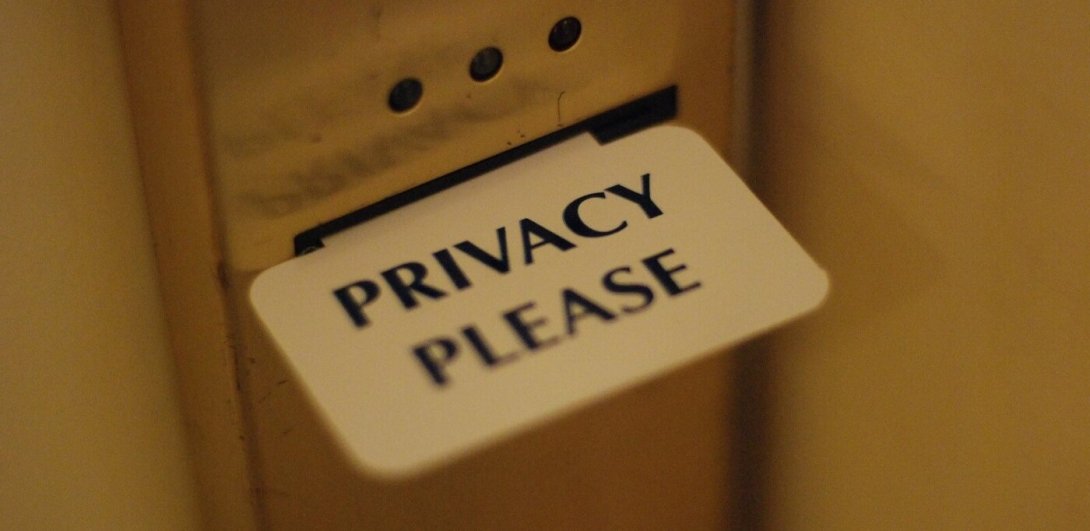Fear-Mongerers Are Trying to Take Away Your Privacy Rights

Original photo by Flickr user Josh Hallett
In the wake of the latest series of tragic terrorist attacks, the heads of the CIA and FBI, among other prominent government officials, are capitalizing on public fears to push policies that infringe on our most fundamental values.
The rise in xenophobic actions and rhetoric we’ve seen coming out of Washington is as alarming as it is predictable.
Last week, the House approved legislation that would block any refugees from Afghanistan, Iraq, Syria and about 30 other nations from being resettled in the United States unless intelligence agencies can certify to Congress that each person doesn’t pose a security threat — a task so burdensome that it would effectively halt the entire refugee-resettlement program, abandoning the innocent people fleeing the same monsters who attacked Paris.
Fear-mongering politicians have also set their sights on government-surveillance powers.
Attempts to violate your privacy
In a rush similar to the one that preceded passage of the now-infamous Patriot Act, officials are taking advantage of the nation’s fear and panic to push for vastly expanded spying powers, claiming terrorists are able to use new technologies to “go dark.”
While current evidence suggests that the perpetrators in Paris were using standard unencrypted texts to communicate, FBI chief James Comey is trying to use the attacks to justify giving the government new backdoors into mobile phones and private communications. Sen. John McCain and a New York prosecutor have also jumped on the bandwagon, calling for federal legislation mandating that companies build weaknesses into their encryption standards to allow access to law enforcement. These calls come despite experts’ repeated warnings that backdoors endanger security for us all.
CIA Director John Brennan dismissed the public outcry following whistleblower Edward Snowden’s leaks as “a lot of hand-wringing” and claimed the disclosures have made it more difficult to identify the “murderous sociopaths” of the Islamic State.
Despite having zero evidence, others have also tried to pin the massive intelligence failure on Snowden. Referring to the Paris attacks, former CIA Director James Woolsey said that the former contractor had “blood on his hands,” and that he would like to see him “hanged by the neck until he is dead.”
A damning New York Times editorial last week condemned such statements as a “a new and disgraceful low” and pointed out that Comey and Brennan are the same officials who have been lying for years about the effectiveness of unchecked and unwarranted surveillance programs.
Impact on presidential race
As anxiety around the prospects of future attacks grows, the presidential candidates have been quick to tout how anti-terrorism they are. Republican candidates Jeb Bush and Marco Rubio have called for the modest reforms in the USA Freedom Act to be delayed, and Democratic candidate Hillary Clinton suggested she was considering support for a backdoor to encryption.
GOP candidate Donald Trump has taken the hateful and dangerous rhetoric to a whole new level. He proposed tracking Muslims in federal databases — and said he wouldn’t rule out requiring Muslims to carry special ID cards disclosing their religious beliefs. He went on to say that mosques should be surveilled and praised controversial NYPD programs that infiltrated Muslim communities and have since been disbanded. Trump told one reporter, “We’re going to have to do things that were frankly unthinkable a year ago.”
No — we absolutely do not.
What we must do is remain calm and carefully examine where our intelligence agencies have failed and what policies can protect both our rights and our national security. It wasn’t a lack of surveillance powers that led to the attacks in Paris — in fact, the mastermind of that attack was already on the radar of law enforcement.
The truth is mass surveillance doesn’t work. More than that, it sweeps up innocent people’s private information while criminal activity can hide like a needle in a haystack. We must grieve these terrible attacks, but we can’t allow a further expansion of the government’s surveillance programs. Taking away our rights won’t make us safer.
Tell President Obama to protect our rights and oppose efforts to expand government surveillance.